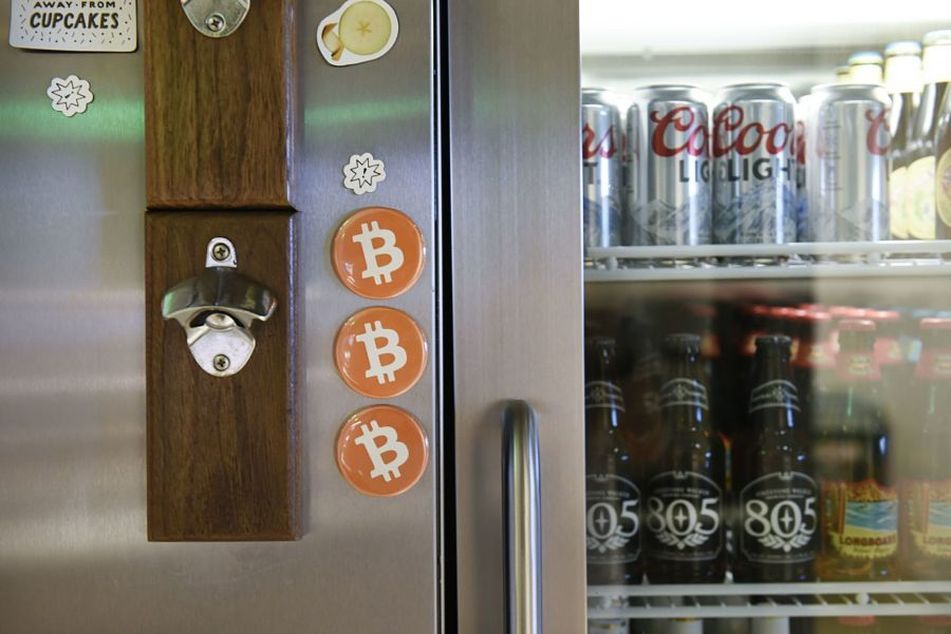FTX collapse fails to derail investments into crypto funds

Crypto bulls see the sell-off as a buying opportunity and distinguish the offshore platform from regulated funds and U.S.-based platforms.
The spectacular collapse of FTX, the world’s second-largest cryptocurrency exchange is shedding fresh light on the expansive list of exchange-traded products offering exposure to digital currencies, and it’s not all bad news.
While most crypto-linked investment products have declined in stride with the more than 70% pullback from crypto’s all-time-high of a year ago, the bankruptcy of the FTX platform is expected to thin the ranks of exchange-traded crypto products and force more regulatory oversight of the crypto space.
“The blockchain and crypto-related ETF space is completely oversaturated,” said Nate Geraci, president of The ETF Store.
“With the SEC failing to approve a spot bitcoin ETF, issuers rushed to offer investors anything tangentially associated with crypto,” Geraci said. “The vast majority of these products launched within the past year or two and essentially top-ticked the crypto market.”
The price of bitcoin, the most popular cryptocurrency, fell below $17,000 on the FTX news last week, which compares to its high of more than $60,000 last November.
But as wild rides go, there’s nothing quite like the brave new world of digital currency investing, and Ric Edelman, founder of Digital Assets Council of Financial Professionals, believes this is a buying opportunity.
He said more than half the people who currently own bitcoin paid more than $30,000, suggesting that the current price is a bargain.
Crypto bulls like Edelman are supported by hard data showing investor appetite for funds even as reports of FTX facing an $8 billion shortfall rolled out last week.
Crypto platform CoinShares shows $43 million worth of net flows into crypto funds last week, including $26 million on Thursday when it became clear FTX was going belly up.
It’s worth noting that $12 million of the net flows were into funds that are shorting cryptocurrencies, but the point remains that the space is not just shutting down with investors running for cover.
James Butterfill, head of research at CoinShares, acknowledged the “FTX black eye” for the crypto space, but said the current price pullback doesn’t even match the 83% peak-to-trough decline of 2018.
“I think FTX does set the crypto industry back a couple years in terms of trust,” he said. “But we are witnessing the birth of a new asset class, and with that comes a very mixed understanding.”
For example, while the collapse of FTX is significant and troubling, Butterfill doesn’t believe it should have a bearing on the price of cryptocurrencies because FTX represents a centralized exchange and crypto is a decentralized asset.
“There are some nefarious players out there acting badly and destroying trust,” he said. “We need regulatory oversight, particularly around the exchanges.”
Steve Larsen, president of Columbia Advisory Partners, specializes in helping clients invest in crypto, and he believes the FTX mess will ultimately help investors, fiduciaries, regulators and politicians better appreciate the nuances of all that’s been thrown into the wide-open crypto space.
“These black eyes for the industry will continue to prove that crypto is about decentralization and not about creating a new version of Wall Street,” he said.
Larsen sees parallels between the way that investor capital was taken from the FTX platform and leveraged and invested without investor knowledge and the way that Bernie Madoff was found to have stolen money from his clients leading up to the 2008 financial crisis.
Of the three main ways to invest in crypto, Larsen said investors should only use exchanges based in the U.S., including CoinBase and Gemini.
He also recognizes the headaches of owning crypto directly in digital wallets because of the risk of losing passwords and systems that hold the investments, but said that is better than an offshore exchange like FTX.
In terms of registered funds that don’t own crypto directly but instead invest in futures contracts, Larsen said, investors should not fear an FTX-type of problem.
“ETFs are definitely safe; they are regulated by the SEC,” he said. “They have regular audits and financial statements and use reputable custodial platforms.”
Roxanna Islam, associate director of research at VettaFi, also sees a silver lining in FTX’s problems in that the incident could lead to an increased focus on regulatory oversight for the space.
“The FTX crash has driven losses broadly across the crypto industry but has also brought to light some important issues about regulation and custody which may benefit the industry in the long term,” Islam said. “More investors may shift away from crypto exchanges and back toward wallets with private keys or toward crypto ETFs.”
Ric Edelman explains the collapse of FTX, world’s second-largest crypto platform
Learn more about reprints and licensing for this article.








